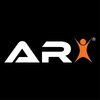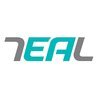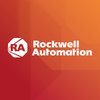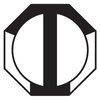Filter interviews by
Honeywell Automation Safety Engineer Interview Questions and Answers
Honeywell Automation Safety Engineer Interview Experiences
1 interview found
I applied via AmbitionBox and was interviewed in May 2022. There were 2 interview rounds.

(2 Questions)
- Q1. Previous work experience
- Ans. Errection and high way and fire alarm
- Q2. Hira identify for incident
- Ans.
HIRA stands for Hazard Identification and Risk Assessment. It is a process used to identify potential hazards and assess the associated risks.
HIRA involves identifying hazards and assessing the risks associated with them
The process includes analyzing the likelihood and severity of potential incidents
Examples of hazards that may be identified through HIRA include chemical spills, equipment malfunctions, and workplace vi
Interview Preparation Tips
Top trending discussions






Interview questions from similar companies

I applied via Naukri.com and was interviewed before Jul 2021. There were 2 interview rounds.

(1 Question)
- Q1. What is your motivation to apply for this position?
Interview Preparation Tips

I applied via Recruitment Consultant and was interviewed before Apr 2020. There were 4 interview rounds.
Interview Questionnaire
2 Questions
- Q1. Scenario based questions on Python.
- Q2. Automate a travel booking website using python and selenium.
- Ans.
Automating a travel booking website using Python and Selenium involves writing scripts to simulate user actions.
Use Selenium WebDriver to automate browser actions
Identify web elements using locators like ID, class, name, etc.
Use Python libraries like requests and BeautifulSoup for web scraping
Implement test cases to ensure the website functions as expected
Handle exceptions and errors that may occur during automation
Interview Preparation Tips
Skills evaluated in this interview

Senior Engineer Interview Questions & Answers
Automotive Robotics (India)posted on 23 Jan 2022
I applied via Referral and was interviewed in Jul 2021. There were 4 interview rounds.
Interview Questionnaire
3 Questions
- Q1. Question from C Programming Language
- Q2. Question from Embedded Communication Protocol like I2C, SPI and CAN
- Q3. Current Project Explanation
Interview Preparation Tips

Senior Engineer Interview Questions & Answers
Automotive Robotics (India)posted on 6 Oct 2023

(1 Question)
- Q1. Project related C C++
(1 Question)
- Q1. Salary negotiation

Senior Engineer Interview Questions & Answers
Titan Engineering & Automationposted on 27 Jan 2023
I applied via Naukri.com and was interviewed before Jan 2022. There were 3 interview rounds.

Costing of a machined part with details
(2 Questions)
- Q1. What is current and expected salary is it negotiable?
- Q2. What is current and expected salary?
Interview Preparation Tips
- CNC Machines
- Costing
- Machining
- Heat Treatment
- Surface Treatment

(2 Questions)
- Q1. Describe designing of Conveyors
- Q2. Iso questions

I applied via Referral and was interviewed in Mar 2022. There was 1 interview round.
(1 Question)
- Q1. For installation department 1- Levelling and alignment of conveyors 2- brief knowledge of sensors 3- knowledge about rollers, bearings, cylinders, Solenoid, motors, sprocket. 4- knowledge about join...
Interview Preparation Tips


(1 Question)
- Q1. About different types of sensors, about power factor. APFC, fundamental electrical and electronics such as uses of capacitor in a electronics card,uses of multimeter, meggar, based on what you show in your...
Interview Preparation Tips

Senior Engineer Interview Questions & Answers
Titan Engineering & Automationposted on 21 Aug 2022

(2 Questions)
- Q1. How many Degree of freedom controlled in fixture?
- Ans.
The number of degrees of freedom controlled in a fixture depends on the type and complexity of the fixture.
A simple fixture may control only one degree of freedom, such as rotation around a single axis.
A more complex fixture may control multiple degrees of freedom, such as rotation around multiple axes and translation in multiple directions.
The number of degrees of freedom controlled in a fixture can also depend on the...
- Q2. 12 Degree Of Freedom.
- Ans.
12 Degree of Freedom refers to the number of independent movements a rigid body can make in 3D space.
A rigid body with 12 degrees of freedom can move in any direction and rotate around any axis.
The 12 degrees of freedom are divided into 6 translational and 6 rotational degrees of freedom.
Examples of systems with 12 degrees of freedom include a spacecraft in orbit or a robot arm with 6 joints.
Interview Preparation Tips
Honeywell Automation Interview FAQs
Tell us how to improve this page.
Honeywell Automation Interviews By Designations
- Honeywell Automation System Engineer Interview Questions
- Honeywell Automation Software Engineer Interview Questions
- Honeywell Automation Senior Engineer Interview Questions
- Honeywell Automation Project Engineer Interview Questions
- Honeywell Automation Engineer Interview Questions
- Honeywell Automation Applications Engineer Interview Questions
- Honeywell Automation Senior Software Engineer Interview Questions
- Honeywell Automation Intern Interview Questions
- Show more
Interview Questions for Popular Designations
- Safety Manager Interview Questions
- Senior Safety Officer Interview Questions
- Senior Safety Engineer Interview Questions
- Safety Officer Interview Questions
- Fire & Safety Officer Interview Questions
- Safety Supervisor Interview Questions
- Fire & Safety Supervisor Interview Questions
- Senior Safety Supervisor Interview Questions
- Show more
Honeywell Automation Safety Engineer Interview Process
based on 1 interview
Interview experience
Interview Questions from Similar Companies
Fast track your campus placements
Honeywell Automation Safety Engineer Reviews and Ratings
based on 5 reviews
Rating in categories
|
System Engineer
405
salaries
| ₹4.8 L/yr - ₹13.2 L/yr |
|
Project Engineer
322
salaries
| ₹2 L/yr - ₹11.1 L/yr |
|
Senior Engineer
245
salaries
| ₹5 L/yr - ₹21 L/yr |
|
Service Engineer
216
salaries
| ₹1.8 L/yr - ₹9 L/yr |
|
Software Engineer
215
salaries
| ₹4 L/yr - ₹16 L/yr |

Siemens

Schneider Electric

Johnson Controls

Rockwell Automation
- Home >
- Interviews >
- Honeywell Automation Interview Questions >
- Honeywell Automation Safety Engineer Interview Questions
















